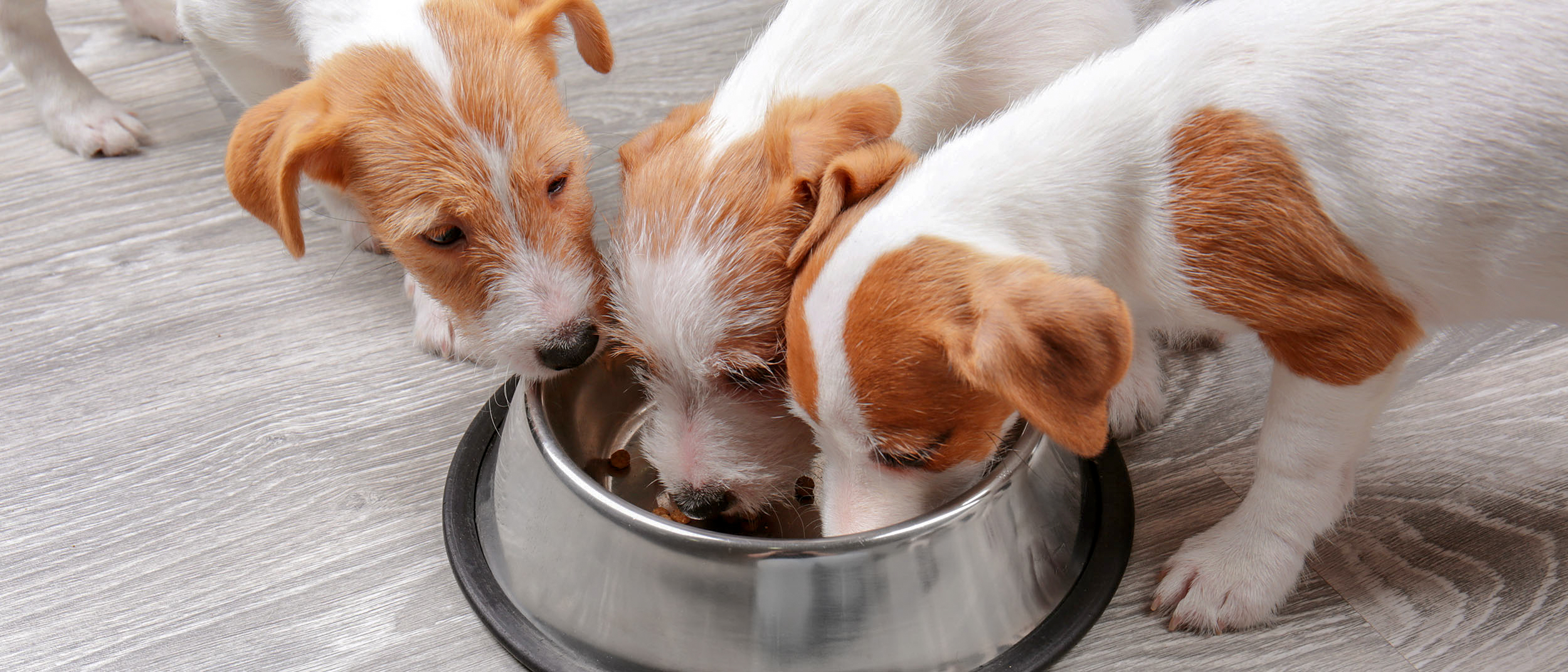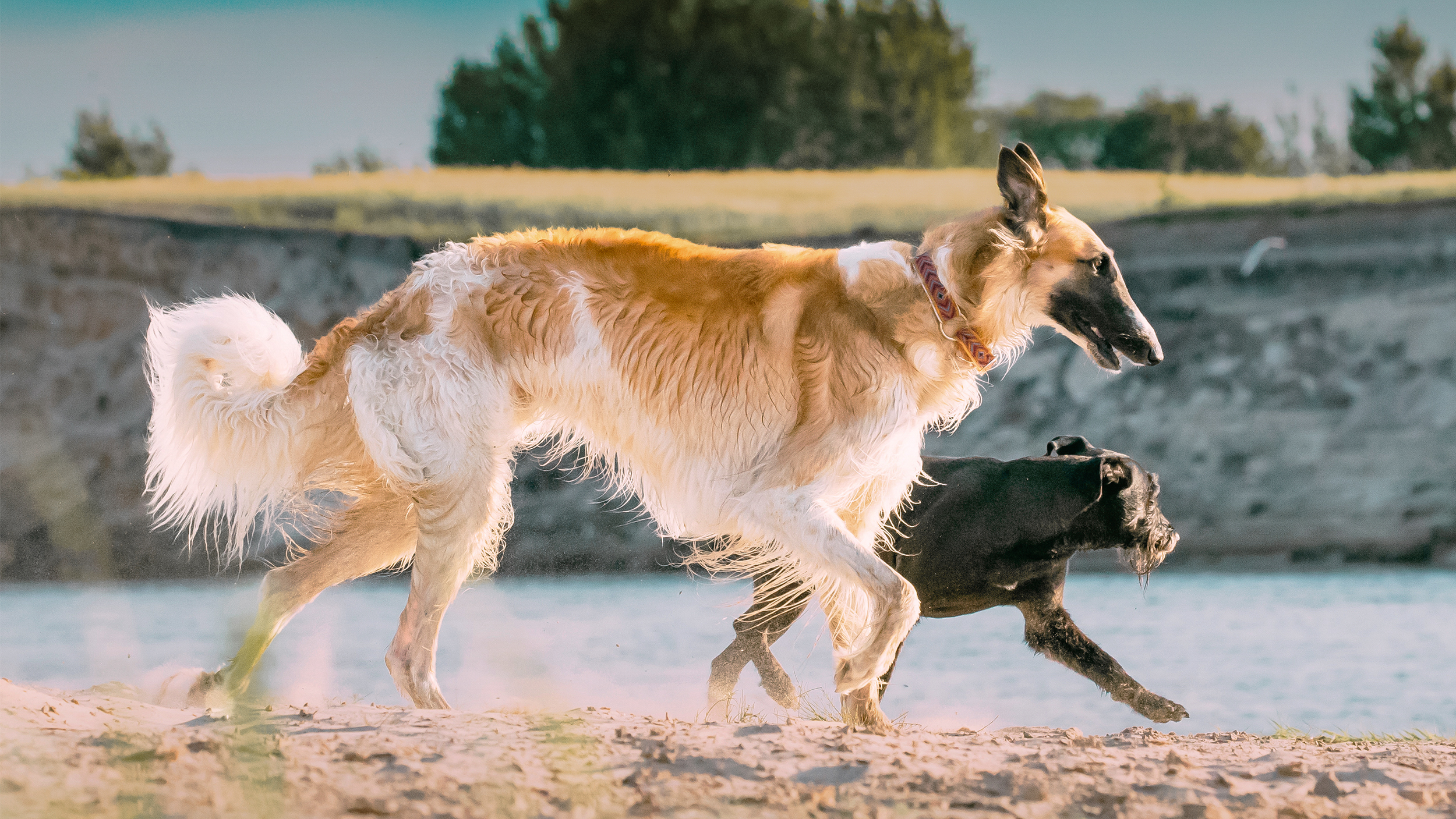What to feed a puppy

After the first month of your puppy’s life, you can start to wean them off their mother’s milk and onto solid food. But what do you need to take into account when choosing their very first food?
Size and breed of dog
Your puppy’s breed and size are two of the most important elements to think about when choosing their first food. Many breeds have specific energy and health requirements, and a food tailored to your puppy’s nutritional needs in this way will ensure they get everything they need to live a healthy young life.
The size of your dog has a significant influence on the sort of food they need, and a strong impact on how they eat, digest and respond to different foods. There are five different size categories for dogs:
- X-small - weighing up to 4kg when adult
- Small – weighing up to 10kg when adult
- Medium – weighting between 11kg and 25kg when adult
- Large – with an adult weight of 26-45kg
- Giant – has an adult weight of over 45kg
Make sure to choose your puppy’s first food according to their likely weight when they are adult (which you can find out from their breed and by talking to your vet). The food will have been created specifically to fulfil the health needs of dogs in that category, which means you’ll be giving your puppy the best start possible.

Nutritional requirements
The specific energy, maintenance and health support your puppy needs from their food depends on their breed and size.
X-small and small dogs have weaker jaws and smaller teeth than larger dogs, so the food they need has to be the right size and texture so they’re able to chew it easily. It also needs to be easily rehydrated for when they’re weaning.
Medium dogs tend to spend a lot of time outdoors, so their food needs to give them appropriate levels of energy plus build up their natural defences. This includes their skin and coat, which serve as an important barrier to bugs and disease.
Large and giant dogs grow more slowly than smaller dogs and develop muscle later in the growing phase. They need a food which supports this sustained growth while also having a texture and shape that’s the right size for their mouth to encourage crunching and slow down eating speed.
Protecting against potential health problems
All puppies have sensitive digestive systems due to the strain of rapid growth, and this can be particularly acute in larger dogs. The best food for them will have the right nutritional balance plus be designed to be as easily digested as possible.
Smaller dogs can suffer from problems with their teeth, such as a build-up of tartar – and all puppies, no matter their size, need to maintain good dental hygiene. The right sized kibble can help with this, as it encourages puppies to chew.
Large and giant dogs are at risk of joint strain or stress during their growth phase as they rapidly build muscle onto their large skeleton, so a good first food for them is one which contains nutrients to support their joint health.
All dogs, no matter the size, need immunity support between the ages of four to 12 weeks, where they are in an ‘immunity gap’ – no longer receiving support from their mother’s milk, but not yet able to maintain their own immune defences. Any first food you choose for your puppy should help support their immune system during this crucial time.
Related Articles
Tailored nutrition for your puppy
A range of formulas that help build their natural defences, support healthy growth and digestive system development.
Like & share this page